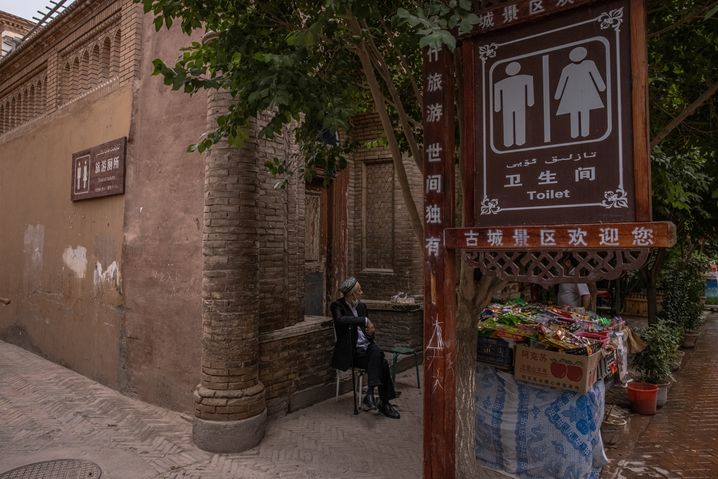In the Sinister Disneyland of Xinjiang: China's Ongoing Oppression of the Uighurs
May 27, 2021Muhammat seems unconcerned by how empty his mosque is: “It’s a common global trend that young people are increasingly focused on earning money. For them, employment is the priority,” he says. “But if they have a bit of spare time, they can come here to pray. There are no restrictions in place to keep the younger generation from praying.” He urges the group to return during prayer if they want to see worshippers. They can even hear the call of the muezzin, he says.
A few of the preacher’s claims are not borne out by our observations. We don’t hear a single call to prayer during our trip, not even on Id al-Fitr, the day marking the end of Ramadan. Thousands streamed into the mosque for morning Id prayers, that is true. But in contrast to everywhere else in the world, not a single child or teenager was accompanying his father. And among all of the faithful Muslims, only a few elderly men wore a beard.
…
According to Muhammat, there are at least 150 mosques in Kashgar. Yet the doors of many of the neighborhood mosques are padlocked shut and the minarets have been stooped. The mosques are no longer in use.
Officials have repurposed one of the houses of prayer. Through a side door, passersby can walk into the room where the devout used to wash themselves before prayer: masonry benches for sitting facing a wall lined with water faucets and a long, tiled basin. Today, it is used as a urinal. Outside hangs a wooden sign reading in Chinese, Uighur and English: “Tourist toilets.”




